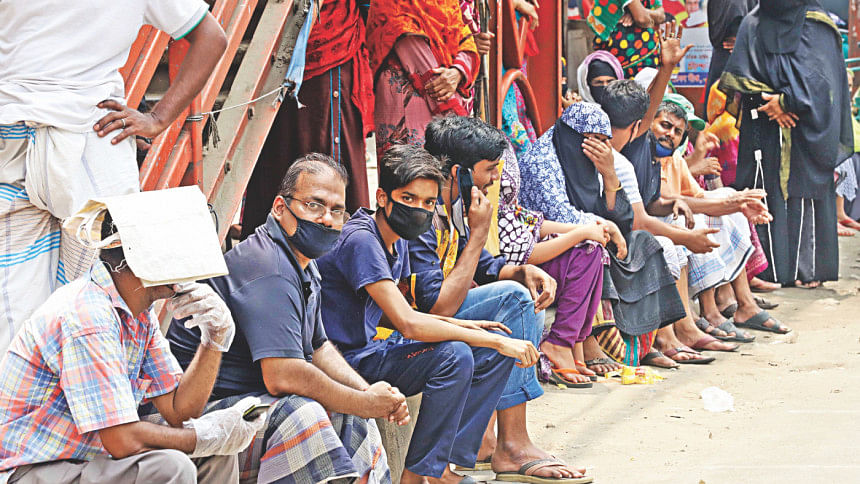It’s a good package, but its delivery holds the key

This is a good package committing 2.5 percent of GDP to keep businesses in industry and services afloat with a particular focus on protecting employment and labour income. As usual, the devil is always in the details. Businesses will get working capital loans from banks at subsidised interest rates. The subsidy is higher for MSMEs and rightly so. Banks will provide the loans from their own funds, thus bearing the risk of default except for the pre-shipment export refinance scheme. It is upon the banks to make sure that the known willful defaulters do not prey on these funds and upon the Bangladesh Bank to make sure that banks have the liquidity to make these loans.
The ball is now in BB's court. It has to quickly work out the guidelines on how these loans should be provided. Since payroll support is central, BB should think about using these loans to support a payroll larger than the Tk 55,000 crore so far committed—Tk 30,000 crore for firms in industry and services, Tk 20,000 crore for MSMEs and Tk 5,000 crore for directly export oriented industries. One option is to provide the concessional loans on a "matching fund" basis. Suppose a firm needs Tk 10 crore to maintain its pre-Covid-19 payroll. The bank could provide such a firm, say, Tk 5 crore from this facility provided the firm pays the remaining Tk 5 crore from its own savings. The matching ratio from the concessional loan window can be higher for MSMEs, say 90 percent, than for large enterprises, say 50 to 60 percent.
Businesses need to be much more responsible in order to deserve help from the public purse. It is not responsible business behaviour to make hundreds of migrant workers walk back from their villages far away from Dhaka only to find out that the owners have decided to extend the factory closure dates.
The honorable prime minister has promised various types of support for the poor and the vulnerable. They include the daily labourers, informal sector workers, elderlies and distressed females. The support will come in the form of cash transfers, free food, subsidised OMS rice and free housing for the homeless. However, the budgetary allocations have not been specified. The needs in this sector are vast and most immediate. The delivery challenges are also much more complex.
We must keep in mind that supporting the extremely poor is actually an essential part of the pandemic mitigation efforts. Social distancing and lockdowns are nearly impossible in homes and neighborhoods that are often crowded and communal by design. We may not be able to minimise these challenges, but we can reduce the human and economic toll by ensuring that lack of timely and adequate finance does not undermine the mitigation measures by forcing these population to be haphazardly out on the streets seeking livelihood support because they have no other option.
Dealing with the impact of Covid-19 pandemic is an unprecedented challenge. Hospitals, tertiary care facilities and personnel are likely to be overwhelmed, payroll support and cash transfers will struggle to reach those working in the informal sectors and businesses will struggle to cope with cash flow disruptions. Where work has dried up due to pandemic mitigation measures, government and various non-governmental organisations must come out to help in supplementing lost livelihoods.
Thinking out of the box is at a premium now. A crowd-funding platform such as 'Milap' in India has opened a window for daily wage earners affected by Covid-19. Initiatives such as this from trusted individuals and institutions will unleash small contributions from a large number which could complement the assistance provided through the revamped and retrofitted public social protection system. Direct cash transfers and food security measures in urban and rural areas are needed right away to provide relief to millions of poor people hit by a nationwide coronavirus pandemic mitigation effort.
The crisis response raises some difficult policy questions. It will add to debt and money supply. It will call into question certain public economic policies and programmes, such as the mega projects and the single digit interest rate as rightly mentioned by the prime minister, and how they are managed. Now is not the time to deal with these issues. Now is the time to demonstrate that we are capable of taking risks and bold action in favour of protecting lives of all and livelihoods of those who are most at risk. Let's make sure that our actions in support of the poorest uphold our compassion and break out of orthodox economic worries.
The author is an economist

 For all latest news, follow The Daily Star's Google News channel.
For all latest news, follow The Daily Star's Google News channel. 



Comments